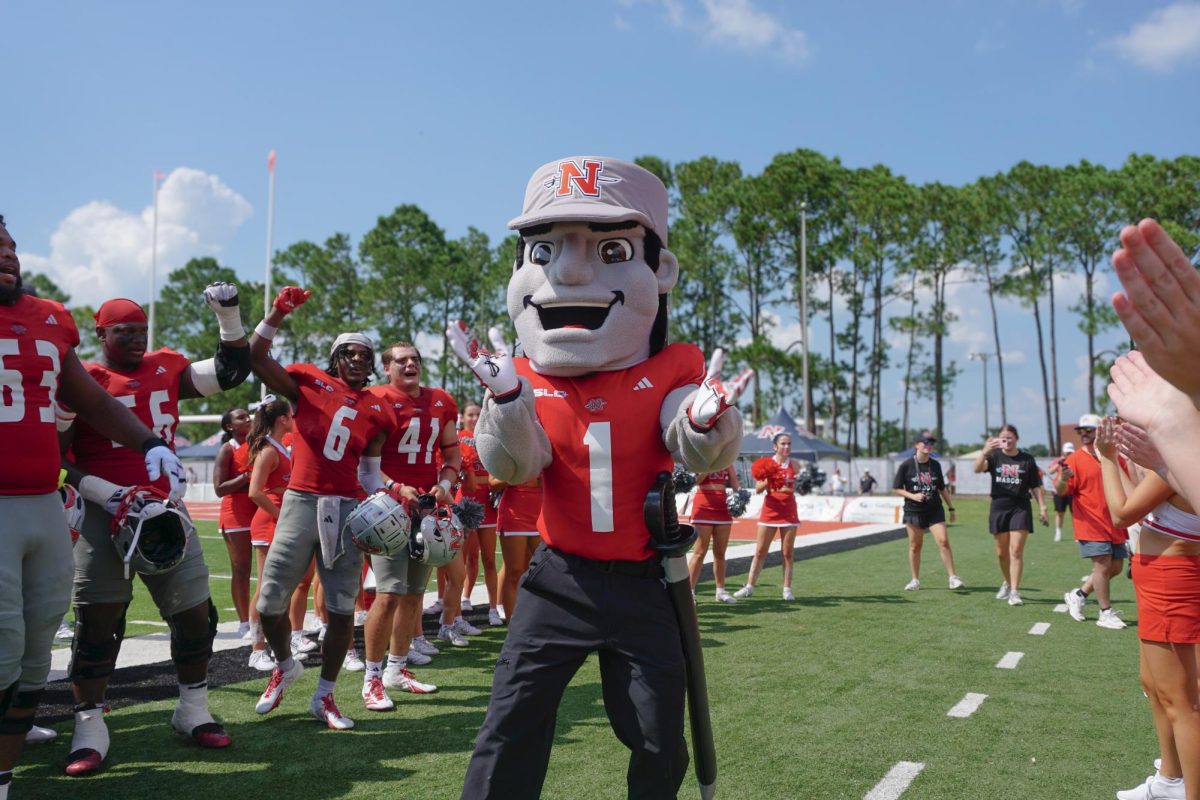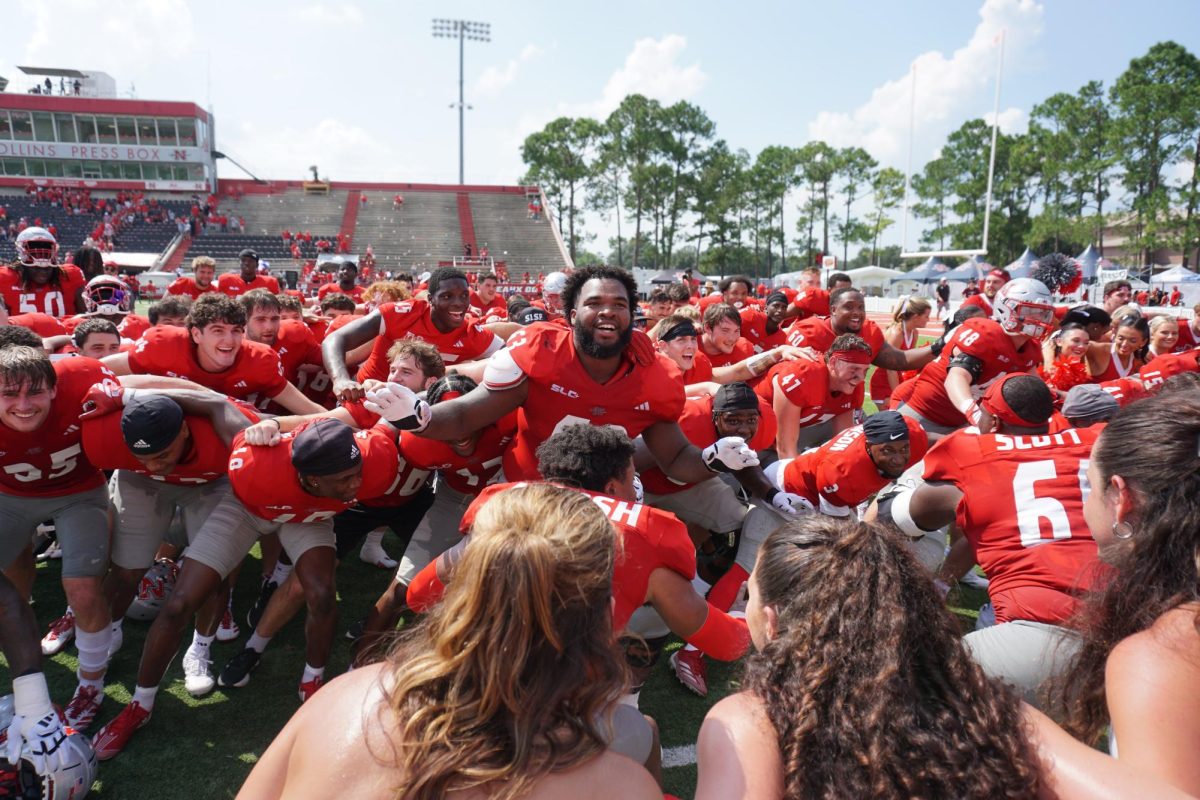Munch Money–a mandatory meal plan for student residents of the La Maison du Bayou on-campus apartment complex–is a problem this summer for some student residents, according to Brenda Haskins, director for auxiliary services; she said, however, her department has been quick in thinking and trying to take care of those individual students. While all La Maison du Bayou residents are required by contract to buy a $200 meal ticket for the summer, not all residents are students this summer, and some residents may not be on campus enough to use a sufficient amount of Munch Money or may not be on campus this summer at all. Summer Munch Money can only be used between the first day of summer semester classes, June 4, and the last day of classes, July 16.
Munch Money is the name of the meal plan for residents of La Maison du Bayou and differs from the regular student meal plan in that Munch Money is a declining balance. Munch Money, like a regular student meal plan, does not roll over from semester to semester.
According to Haskins, Munch Money and other student meal plans cannot roll over to the next semester because of the design of the University computer program, which requires that all accounts return to a $0 balance at the end of a semester. Haskins also said little money is left over from students at the end of semesters and the University advertises at the end of each semester to remind students of the coming deadline to use their money.
Haskins said if a student has any remaining Munch Money at the end of a semester, the money is circulated into a food services fund.
Also, regular meal plans restrict students to certain areas of food services on campus while Munch Money does not. Haskins said Munch Money can be used for most on-campus food service but cannot be used for vending machines and non-food services like copy machines; she also said vending machine options for students with Munch Money should be operating in the fall.
“The other cash is Colonel Cash, and (Colonel Cash) allows you to spend your money everywhere,” Haskins said. “But this is dedicated money to food services only, so that’s why we call it ‘Munch Money’.”
According to Haskins, having La Maison du Bayou residents buy a meal plan was a predetermined part of the original package idea when the University was bidding with various companies for the apartment complex.
According to Clause 26, “Eligibility,” of the apartment contract for residents of La Maison du Bayou, to be eligible to lease and reside at La Maison du Bayou, students are required by the University to purchase a $350 “Munch Money” debit card per semester and that price may be lesser during the semesters other than fall and spring. The clause also states: “‘Munch Money’ can be used at the cafeteria, student union food service operations and at the convenience store located in the La Maison du Bayou clubhouse.”
“We also give (students) an information card in which we tell them about the meal plan,” Haskins said. “We tell them how they pay for it and how they can use their meal plan money. We give that to them at the beginning of the semester.”
Haskins said the University is in its first year of the contract with those residents of La Maison du Bayou, and the summer has brought some unique circumstances because not all students living there are attending summer class.
Haskins said, “Right now the students are coming in to me and saying, ‘Well look, I work in Morgan City’ or ‘I work construction and (I’m gone all day).’ We’re taking a look at those individual students.”
Haskins currently has a list of approximately 18 students who cannot be located. “This tells me that (the students on the list) are not here. If they’re not here and have a good reason that we can document and keep on file, it’s obvious I’m not going to charge them for the meal plan.”
Mary Peterson, a nursing junior from Patterson, said her experience with the Munch Money policy has been extremely inconvenient. Peterson said she spends most of her time in the nursing building where the only food options are vending machines which the Munch Money card does not work for. She said she is not usually at her apartment during the only two hours each day when the complex’s grocery store is operating.
“I’m trying to contact Brenda Haskins because I have over $100 left in my account that I probably won’t be able to spend,” Peterson said. “I could use that money for apartment rent and other expenses.”
According to a survey conducted by Haskins, the price range of Nicholls’ student meal plan, $350 for fall and springs semesters, is in the same range as other state universities such as Northwestern State University in Natchitoches. Haskins said other state universities such as University of Louisiana at Lafayette charge full meal tickets for students living in on-campus apartments and Louisiana Tech University in Ruston charges $400 per quarter with quarters being shorter than Nicholls’ semesters.
“I think we tried to be reasonable in coming up with an amount of money (for the summer meal plan),” Haskins said.
Haskins came up with the $200 by assuming each student would eat one meal on-campus each day with an average meal costing between $4 and $5. That average resulted in $150, and she added an additional $50 for snacks and other sorts of incidental occurrences. “(With that price), I’m trying to get everybody through the summer, making sure that they’re getting a good meal here on campus whenever they are busy. You can stay on campus; you can go to the library and study. I do a similar process for the full semester, but give (students) a little more leeway because they’re (busier) and all of the students organizations are going.”
“What (this ordeal) told me is that we didn’t do a good enough job serving the students before the end of the spring semester to find out where they are and what they are doing this summer,” Haskins said. “So it tells us what we have to do next year and before every semester. It’s been a learning experience for us.”
Haskins said she held a meeting with officials at La Maison du Bayou to discuss the issues with the Munch Money policy and prepare to write some procedures to make the mandated meal plan more clear to students for future semesters. She said in the fall, students will receive a form attached to their lease that states that they understand that they are getting a meal plan. “That lease is a long document. I’m (adding the attached meal plan form to the lease in the fall) because I want (the students) to know upfront that they will be purchasing a meal plan. We’re just trying to make this system more efficient.








